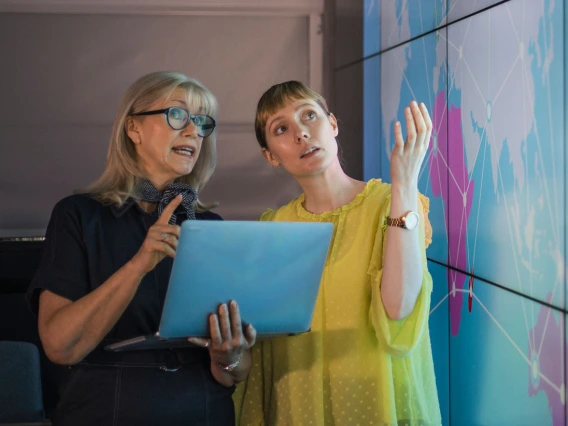Games and Simulation
Undergraduate Certificate
Quick Facts

Top 1%
of all Higher-Ed
Institutions
- Center for World University Rankings, 2024
#1
In Best Value Among
Arizona's Public Universities
- Payscale, 2024
Cultivate the design and development skills necessary to create virtual interactive environments that span across devices and platforms. This certificate will teach you real-world skills needed for successful game design, and will signal to potential employers that you have dedicated the time and energy necessary to build fluency with concepts that guide virtual world development. Gain familiarity with the field of game studies and the game design industry, develop intentional cross-cultural connections and relationships with others in game studies to develop digital games.
Upon the completion of the certificate, you will be able to identify the majority of known game genres, understand the fundamental components of a game, the design issues inherent in different types of games and much more. You’ll also be able to clearly communicate game designs verbally and in the form of written documentation.
*Residents of some U.S. Territories may not be eligible. Please see our Eligibility & State Authorization page for more information.
In order to earn the certificate, students must complete ISTA 251, two GAME courses and one additional elective course.
This course provides an introduction to game design and teaches students the fundamental concepts for creating games. Students will survey many different games, exploring the issues game designers face when designing games in different genres. Students will participate in a series of game design challenges and will be responsible for designing and prototyping simple games using a game building tool.
The course on gamification introduces you to the uses of game design elements (such as online games or apps) in non-game contexts. You’ll be introduced to and compare scholarly analyses of gamification across a variety of fields, analyze relevant case studies and best practices of gamified strategies from various social sectors, and survey potential benefits and disadvantages arising from the use and overuse of gamification principles.
This course surveys eSport as an activity, as a site for groups or teams building community, and as an emerging digital industry worldwide. Students will learn about differing stakeholders and organizations converging in eSports. Students will also consider eSports from differing lenses, perspectives, and academic disciplines.
This course aims to give students fundamental knowledge and hands-on experience about the ways of earning money through video games independently. There will be discussions, hands-on activities, research and case studies, reading and video assignments followed by quizzes, a midterm exam, and a final project that emphasizes hands-on application of the learned content.
This course teaches students advanced concepts, techniques and mechanisms in Unity, covering procedural content generation, design patterns, artificial intelligence, shaders and postprocessing effects, animation, custom interactions and gestures, and performance optimization. The students are expected to have fundamental game development knowledge in Unity and C#. The course is heavily hands-on and project oriented.











